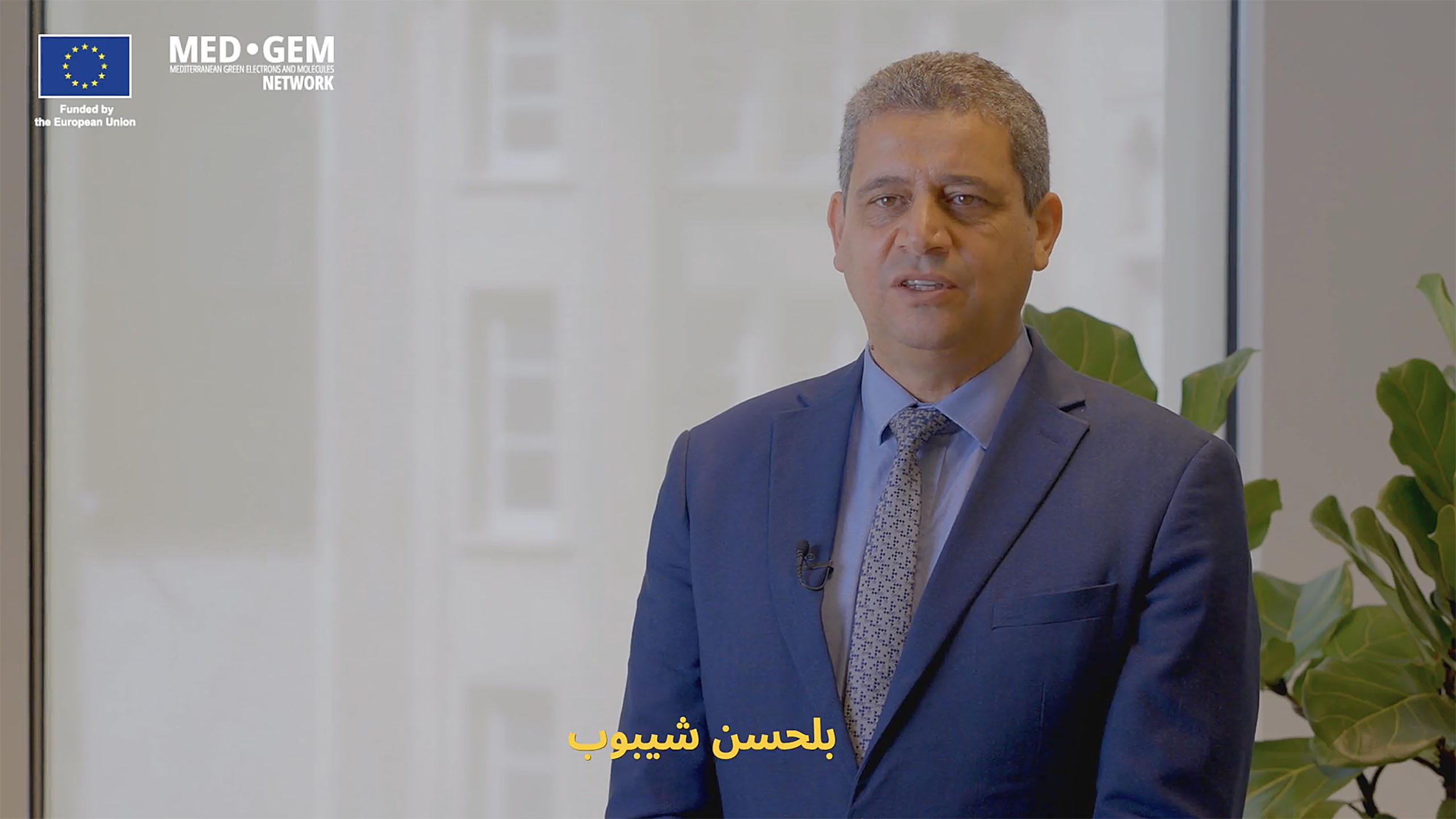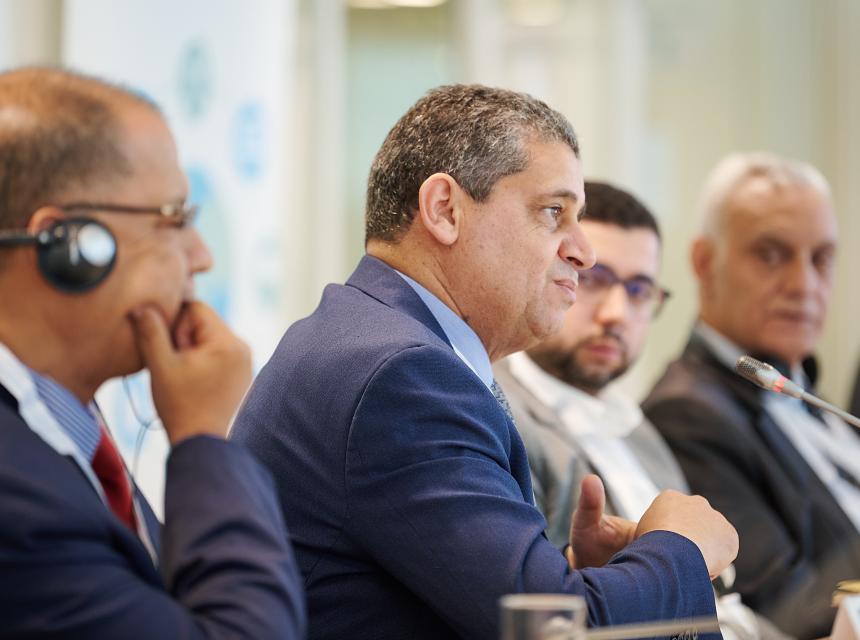Tunisia: PPP, ELMED and the ambitious MoU Toward Green Hydrogen and Renewable Energy
During an interview conducted at the 3rd Steering Committee of the MED-GEM Network held at the headquarters of Hydrogen Europe in Brussels last June the 10th 2024, Mr. Belhassen Chiboub, Director General of Electricity and Energy Transition at the Ministry of Industry, Energy, and Mines of Tunisia, shared his country's ambitious goals for green hydrogen and energy transition. This discussion highlights the key strategies and partnerships that could position Tunisia as a major player in the energy transition in the Mediterranean.

An Ambitious Roadmap for Green Hydrogen
"We have established a roadmap for the development of green hydrogen with a target of 8.3 million tons by 2050," said Mr. Belhassen Chiboub, introducing the key aspects of Tunisia's strategy. "Six million tons will be for export, and 2.3 million tons will be for the local market." This roadmap is part of a strategic vision in which Tunisia aims not only to meet its internal needs but also to establish itself as a key supplier to Europe.
However, the challenges are numerous, starting with the management of water scarcity in a country already facing significant water stress. "We need to desalinate water to produce green hydrogen," Mr. Chiboub noted, emphasising that production will require close integration between desalination, renewable energies, and transport infrastructure.
Public-Private Partnership at the Core of the Strategy
To realise this vision, Tunisia relies on strong public-private partnerships. "All the structuring of the project, from water production, desalination, renewable production, Electrolysers, and green hydrogen production, should be carried out by several companies within a public-private partnership framework," Mr. Chiboub insisted. The Tunisian state will primarily act as a facilitator by establishing the necessary legislative and fiscal frameworks to encourage foreign investments. This collaborative approach is crucial for attracting investments and sharing risks, particularly for large-scale projects like green hydrogen.
The ELMED Project: An Energy Bridge Between Tunisia and Europe
Another crucial aspect of Tunisia's energy strategy is the ELMED project, which aims to create an electrical interconnection between Tunisia and Italy. "The ELMED project is strategic for the relationship between the European Union and Tunisia," said Mr. Chiboub, adding that this project would stabilise electrical grids and facilitate the export of renewable energy to Europe.
Supported by the European Union with initial funding of 307 million euros, the ELMED project is estimated at a total of 840 million euros, with the remainder shared between European: BEI (45M EUR), BERD (45M EUR), KfW (35M EUR) and Tunisian operators. This interconnection is a significant asset for Tunisia, not only for diversifying its energy sources but also for strengthening its position in the European market.
Tunisia’s Expectations from the European Union
To achieve its goals, Tunisia requires continuous support from the European Union. "We have prepared a Memorandum of Understanding (MoU)with the European Union to strengthen cooperation in renewable energy," announced Mr. Chiboub. This MoU, which has been signed during the 21st edition of the Tunisia Investment Forum (TIF) held on June 12-13, 2024, provides an enhanced cooperation for the development of energy infrastructure.
"Tunisia has considerable potential in renewable energy and geographic proximity to Europe, which could facilitate green hydrogen exchanges via submarine pipelines," continued Chiboub, mentioning the possibility of a new pipeline between Tunisia and Italy for transporting this clean energy.
Conclusion: An Energy Transition in Progress
Tunisia is positioning itself as a future green hydrogen hub in the Mediterranean, with clear ambitions and a strategy supported by international partnerships. However, the success of this transition will depend on the country's ability to structure its projects, attract investments, and navigate a complex geopolitical environment. As Mr. Belhassen Chiboub pointed out, "The energy transition is both a necessity for the climate and an economic opportunity," and Tunisia intends to play a central role in this new global energy paradigm.
About the Tunisia Investment Forum
The 21st edition of the Tunisia Investment Forum (TIF), held on June 12-13, 2024, was marked by the signing of a memorandum of understanding (MoU) on energy between Tunisia and the European Union. The Minister of Industry, Mines, and Energy, Mrs. Fatma Thabet Chiboub, emphasised the importance of this cooperation for the energy transition, aiming to strengthen partnerships in the renewable energy sector and support innovative projects. The Italy-Tunisia electrical interconnection project, known as ELMED, was presented as a flagship project, enabling the linkage of the electrical grids of the two countries and promoting the integration of renewable energy.
Several financing organisations, such as the European Investment Bank (EIB) and the European Bank for Reconstruction and Development (EBRD), participated in the forum to support these initiatives. Their presence was intended to encourage public and private investments by providing financial tools adapted to sustainable development projects. This partnership between Tunisia and the European Union, through projects like ELMED, was highlighted as a model of cooperation aimed at enhancing sustainability and creating investment opportunities in the renewable energy sector.

